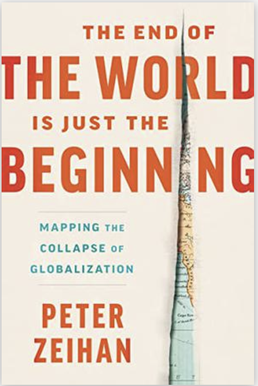The Bahá’í Faith presents a distinctive perspective on apocalyptic themes, particularly in its understanding of the “End of the World” and the heralding of a “New Beginning.” This dual concept propels adherents to reconsider their existential paradigms and invites a transformational viewpoint toward future possibilities. Central to these teachings is the embodiment of hope, the promise of renewal, and the realization of a unified humanity under the auspices of divine guidance.
Bahá’í teachings assert that the term “End of the World” does not signify a literal cataclysm or obliteration of existence. Instead, it connotes the dissolution of outdated social, political, and spiritual systems necessitating a profound evolution in consciousness. This concept compels individuals to engage in self-reflection and recognize the obsolescence of divisive ideologies that perpetuate discord. Such a re-evaluation encourages a collective awakening to the necessity of cultivating a global community that transcends borders and cultural disparities.
At the heart of this transformation lies the prophetic assertion of the coming of Bahá’u’lláh, the founder of the Bahá’í Faith. His mission encapsulates the divine will for a unified, peaceful society. The Bahá’í teachings articulate that the disruption caused by societal upheaval often serves as a precursor to a renaissance of spiritual understanding and collaboration. The crises faced by humanity, ranging from climate change to geopolitical strife, can thus be viewed through a lens of opportunity—a catalyst for collective action aimed at fostering harmony and justice.
In contemplating the implications of the “End of the World,” it is paramount to recognize that this period of turmoil is not devoid of purpose. The Bahá’í writings elucidate that these transformative events are akin to birthing pains, ultimately leading to the emergence of a new societal paradigm. Just as a caterpillar must undergo metamorphosis to become a butterfly, humanity faces the arduous task of relinquishing antiquated structures to facilitate the ascendance into a new, divinely inspired existence.
Crucially, the Bahá’í perspective emphasizes the role of individuals in this metamorphosis. Believers are called to actively participate in the realization of this new order by cultivating virtues such as compassion, justice, and trustworthiness. This personal development contributes to the overarching goal of societal evolution; as individuals transform, so too does the collective experience of humanity. This symbiotic relationship underscores the belief that the new world order will not simply materialize spontaneously but will require deliberate effort and commitment from individuals across the globe.
Moreover, the Bahá’í teachings advocate for the application of science and religion as complementary forces in the pursuit of truth. This integration holds profound implications for how humanity grapples with contemporary challenges. By embracing rationality and spirituality in tandem, believers are equipped to devise innovative solutions to pressing global issues—be they environmental degradation or social injustice. This holistic approach engenders a form of enlightenment wherein knowledge and faith coalesce, ultimately enriching both individual and collective life.
An integral aspect of the Bahá’í vision for the future is the establishment of universal peace and a just world order. The concept of global governance is not merely utopian; rather, it is viewed as a necessary evolution of human institutions. In a world fraught with systemic inequities, the Bahá’í teachings advocate for the establishment of systems that prioritize the well-being of all. Such frameworks must be built upon principles of equity, inclusivity, and consultation—a far cry from the adversarial paradigms prevalent in conventional governance.
Education emerges as a cornerstone in the Bahá’í strategy to usher in this new reality. By promoting universal access to education, particularly for girls and marginalized communities, the Bahá’í community prioritizes the cultivation of an informed citizenry equipped to address societal challenges. Education is not merely a tool for personal advancement; it is a transformative force that elevates societies as a whole. The ramifications of an enlightened populace extend far beyond individual success, fostering communities that are resilient, adaptable, and committed to the common good.
Furthermore, the interconnectedness of humanity cannot be overlooked in the Bahá’í teachings. The conception of a single human family illuminates the moral imperative for cooperation and unity. As the world grapples with regional conflicts, cultural misunderstandings, and social injustice, the Bahá’í Faith invites all individuals to transcend these divisions. This collective embrace of diversity enriches the fabric of global society, enabling a shared narrative that celebrates the multiplicity of human experience while underscoring our common aspirations.
As we navigate the complexities of the present, the Bahá’í perspective offers a compelling invitation: to reframe our understanding of endings and beginnings. Rather than succumbing to despair, adherents are encouraged to foster hope anchored in a vision of justice and unity. The transformative power of this hope can catalyze personal and communal endeavors toward constructive change, ultimately leading to the realization of a harmonious and interconnected world.
In conclusion, the Bahá’í teachings regarding the “End of the World” and the emergence of a “New Beginning” are a clarion call for introspection and collective action. This journey, marked by the dissolution of outdated systems and the promise of a radiant future, urges humanity to embrace its highest ideals. By recognizing the potential inherent in current upheavals, individuals are empowered to contribute to the unfolding narrative of a world where justice, peace, and unity prevail.
